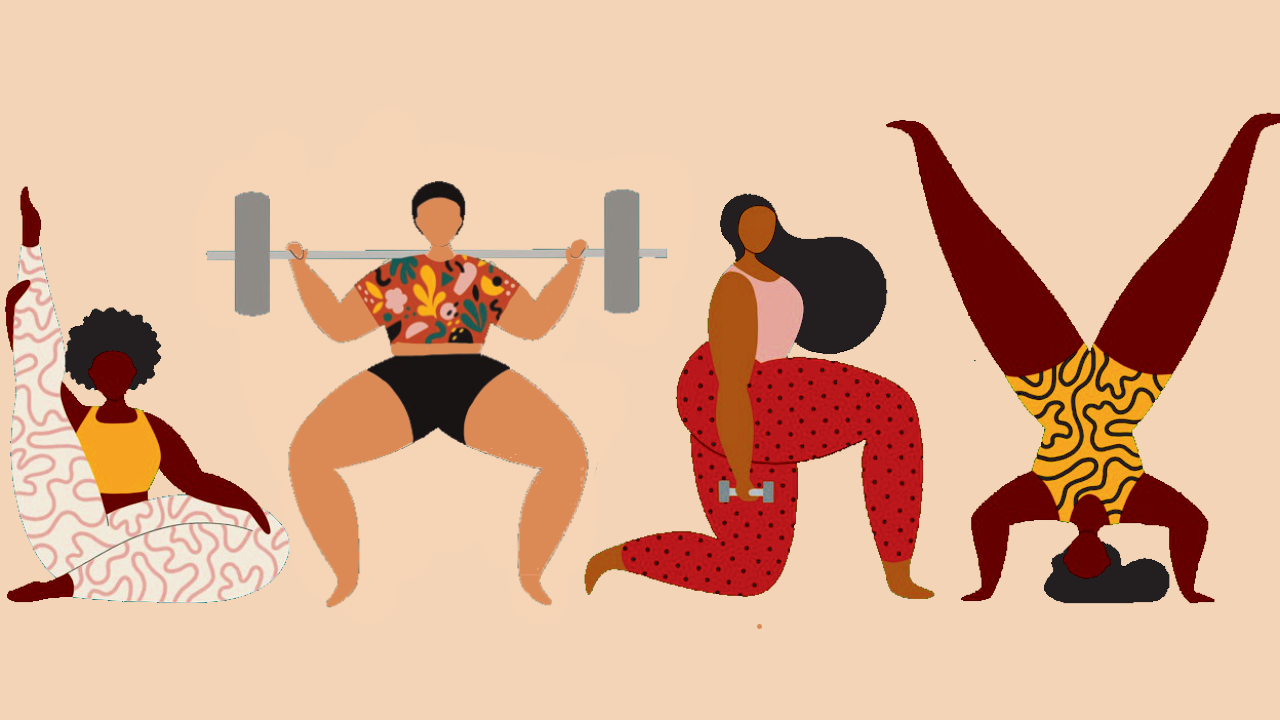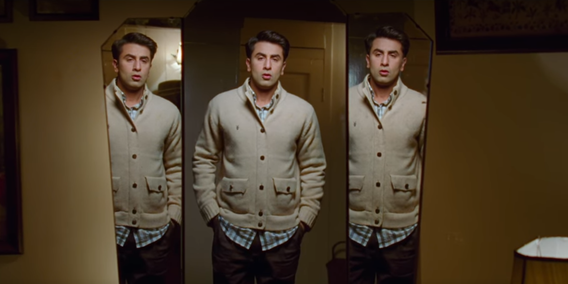As someone who has been a chubby child and has been constantly told how “golu” she was, talking about ‘health’ was always stressful for me. Add PCOS with a lot of anxious thoughts to that mix, and physical training becomes a nightmare!
The gym was actually a space of extreme stress and restlessness for me. I perpetually felt (or thought I felt) people’s eyes on me. And here’s the thing, I know our society is fat-phobic and I know the microaggressions that come with being fat in India, but seeing gym trainers have the same perception toward me as society did made me detest the gym more than ever.
I was constantly asked to work harder, do more cardio, lift more weights, not eat “junk” food, have more protein, and come to the gym more regularly. This actually made me skip the gym for weeks together, and we can only imagine what I was told the next time I stepped into (what I thought) was a space for only “thin, fit, and beautiful” people.
Everytime I entered the gym, I felt more aware of my flaws. It increased to a level where I tried to fix my appearance so many times before entering the gym. Mainly because I wanted the trainers to help me exercise and train me to become stronger, not to comment on my appearance or give me diets, and back-handed compliments all the time (PSA: “you would look great once you lose weight” is not a nice thing to say!)
But I also knew I was not alone in this struggle. I saw trainers making ‘fun’ comments on other people to motivate them (I have never understood how sarcasm or being mean can motivate anyone for a long time). I remember someone being told to lift 5kg dumbbells when they (clearly) didn’t have the strength to, and then were told to “buck up and come to the gym more often” because they “couldn’t even do that much”.
Yes, research says physical training helps our mental health, but a lot of the time the attitudes that come with people at the gym can make our health a lot worse. All the comments, stares and “recommendations for my bhalai (benefit)” actually made me very physically conscious, and not in the best way.
I was hell-bent on losing weight just to prove to everyone that I could. Just so I was seen as someone fit to enter the gym in the first place. What did this end up in? Disordered eating, bad self-image, and the extreme need to look “thin, fit and beautiful” to fit into the gym space. If you’re wondering how my gym experience was after that point - here’s the answer: still bad.
I went to the gym feeling confident. But this time around I was told I was too thin, too weak. I had to gain strength, reduce my belly fat, build arm muscles, eat more protein, and have a better physique. I beat myself up for a long time before I figured that it was not me but the attitude people have around training, gymming and motivating that was the problem.
As a mental health professional (and a psychology student back then), I kept thinking in perspectives. If someone comes to me with a mental health concern, would I point out their flaws explicitly? Try to push them with aggression and sarcasm? Would I constantly tell them to work harder to feel better? Would I blame their concerns completely on them and tell them that they need to buck up?
Then why did this happen in the gym? Aren’t trainers technically health professionals too? Would it be beneficial to guide someone in any space without empathy? Why was everything else I was feeling, doing, or thinking in my day to day life thrown out of the window as soon as I stepped into a physical training environment?
Here’s the thing: as much as our physical training positively affects mental health, I believe our mental health affects our gymming and training too. Someone who is not in a good space mentally, will not have the energy and motivation to work out like others, to be positive and train with intensity. It’s a privilege to not have any invisible concerns that trouble us while working out, to not feel anxious, to be utterly confident and positive in that space.
What happens to someone feeling extremely low when they go to the gym and are told to “buck up and exercise” when just entering the gym was a struggle for them? What happens to someone who has anxiety and is told in front of everyone that they have gained weight and need to exercise more? What happens when you praise someone for losing weight when the only way they have lost weight is by starving themselves and exercising for hours together?
As many times as you want to say these statements are just “truthful facts”, or want to narrate “success stories” of people (or yourselves) who’ve lost weight and feel happier after, how do you know what the other person is going through and how they are going to digest those so-called facts?
People work in different ways. Some like to be complimented, some do not want to be the centre of attention, some prefer not having (unsolicited) advice thrown at them, and almost no one wants to have their insecurities pointed out. Infact, here are a few things that can help make a physical training space more empathetic (as a gym-buddy or a trainer):
- Ask people if they actually want your suggestions or help (here is where the mansplaining argument begins and ends altogether).
- Understand how comfortable they are with your views. Whether that’s compliments, diet cultures, going vegan, protein shakes, or if that’s you telling them that they look stronger or weaker. (Ask them how comfortable they are if you can’t gauge.)
- Make space for them to talk about their mental health or their day. Personally, I would love it if my trainers or gym-buddies asked me how I am doing and took my answer seriously!
- Let your buddies know it’s okay if they cannot do everything on their WOD, if they just want to take some time off, or if they feel overwhelmed to workout in ‘beast mode’. Share the feelings that come with workouts.
-
Understand their goals before you assume anything at all! People want and need different things from physical exercise and that’s their decision to make, no matter what we believe should change about them (because then that’s our need, not theirs!)
We might go to the gym to feel stronger, happier or fitter, and as much as our motivation is a big factor, so is our mental health and the physical space we are in. Remember that your training space should not be a space for discomfort, anxiety or stress. It should not be a space where you feel insecure and inferior to others, or where you feel pushed to do things you don’t want to do.
If the space makes you uncomfortable, make sure you talk about it or build some boundaries in that environment. Like interacting less with the trainers or letting them know what is making you uncomfortable. Let them know what you don’t want and what you would need from them. Set clear goals that you’d like to reach, and discuss it with them.
Remember that you have agency over your body and you can decide what is good and not good for you - even at the gym. It’s okay if your emotions are overwhelming and you want to take a step back. It’s okay if you don’t want to do a certain exercise on a certain day because you feel like there are eyes on you. It’s okay if the gym is just a place for you to cool off, or a place where you want to push hard.
Physical fitness is important, but so is your mental peace and health. Don’t let one affect the other negatively. Remember that your physical training space is your space for your needs, goals and physical aspirations. Letting that space dictate your needs and wants based on societal expectations or the ‘new trend’ might make it more of a burden than a place of personal physical growth. mental health and physical training mental health and physical training







